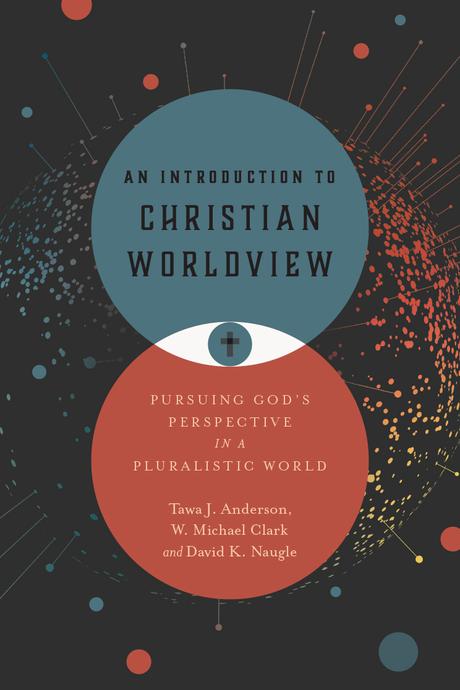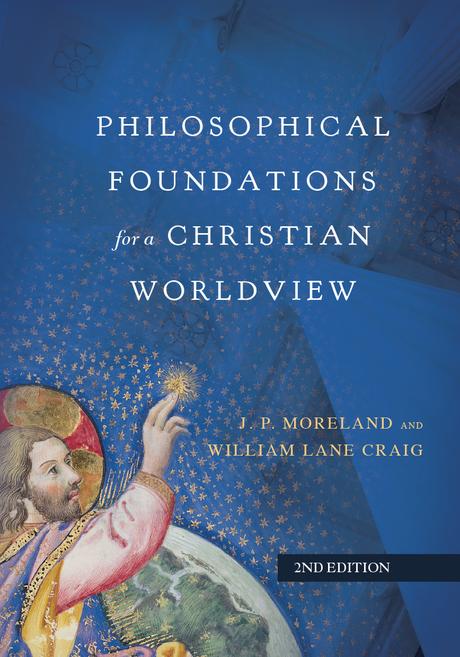One of the chief topics of study and discussion among Christian apologists is “worldview.” Our book review today will include two books, so we’ll call it a “books” review.
The first is a new book (2017) and the second is a recent update (2017) of an older book (2003). IVP Academic is the publisher of both textbooks.

An Introduction To Christian Worldview: Pursuing God’s Perspective In A Pluralistic World was written by Tawa J. Anderson, W. Michael Clark, and David K. Naugle. Anderson has a PhD. and teaches philosophy at Oklahoma Baptist University. Clark has a PhD. and is a law clerk at the Arizona Court of Appeals (former professor at Oklahoma Baptist University). Naugle has a ThD. and is chair and professor of philosophy at Dallas Baptist University.
The authors look at three important aspects of worldviews –
- Introducing Worldview
- Contours of a Christian Worldview
- Analyzing Worldviews
Their concluding section is titled appropriately – “Pursuing (and Living) God’s Perspective in a Pluralistic World.” It’s one thing to know about different worldviews and another to do something about it.
This is an excellent book for Christians who want to understand the impact Christianity has on other worldviews and for the Christian apologist who is looking for new insight and ideas into how to present the Gospel of Christ in a pluralistic world. I highly recommend this for you to read.
Publisher’s Description
“Everyone has a worldview. A worldview is the lens through which we interpret the cosmos and our lives in it. A worldview answers the big questions of life: What is our nature? What is our world? What is our problem? What is our end?
As Anderson, Clark, and Naugle point out, our worldview cannot simply be reduced to a series of rational beliefs. We are creatures of story, and the kinds of stories we tell reveal important things about our worldview.
Part of being a thoughtful Christian means being able to understand and express the Christian worldview as well as developing an awareness of the variety of worldviews. An Introduction to Christian Worldview takes you further into answering questions such as the following:
- Why do worldviews matter?
- What characterizes a Christian worldview?
- How can we analyze and describe a worldview?
- What are the most common secular and religious worldviews?
Well organized, clearly written, and featuring aids for learning, An Introduction to Christian Worldview is the essential text for either the classroom or for self-study.”
Reviews
“This book offers a refreshing update of Christian worldview teaching for students of Scripture. It is rigorous and deep for serious students, yet accessible for the popular reader who wants to live a muscular Christian faith in our pluralistic marketplace of world-and-life views. One of my favorite aspects of this book is its real world examples of worldview thinking and analysis from Scripture, life, entertainment, and culture—especially movies!” Brian Godawa, author of Hollywood Worldviews
“It’s all here: a stellar introduction to (1) the concept of worldview, (2) the contour, content, and defense of the Christian worldview, and (3) explanation and critique of alternate secular and religious worldviews. There is little new here, but new notions of basic Christian belief and practice are often misleading and sometimes profoundly false. Here the truths of Christian faith gleam with clarity and conviction. I’m impressed.” James W. Sire, author of The Universe Next Door and Apologetics Beyond Reason
“It’s become fashionable in some circles to downplay the importance of worldview. An Introduction to Christian Worldview counters this tendency by offering a clear apologia for the value of thoughtful worldview construction and evaluation to Christian faith. Moreover, it provides a concrete comparison of a Christian worldview to alternative models found in philosophical systems and world religions. The authors make their ideas readily accessible to readers, and it is a valuable resource for all Christians who desire a deeper understanding of the conceptual foundations of our faith.” Steve Wilkens, professor of philosophy and ethics, Azusa Pacific University

Philosophical Foundations for a Christian Worldview, 2nd Edition, was written by J.P. Moreland and William Lane Craig. The first edition was published in 2003; the second in 2017. Moreland has a PhD. and is Distinguished Professor of Philosophy at Talbot School of Theology, Biola Unversity. Craig has a PhD. and DTheol and is professor of philosophy at Talbot School of Theology and at Houston Baptist University.
The 1st Edition of Philosophical Foundations quickly became a gold standard for Christian apologists studying Christian philosophy. The 2nd Edition was updated and expanded 14 years later for a new group of apologists and students as well as for those who loved the earlier work.
Philosophical Foundations for a Christian Worldview is a very serious read and will be a book you can refer to for years to come. The authors go into great depth in six important categories –
- Introduction – What is Philosophy & Argumentation and Logic
- Epistemology – Knowledge and Rationality, The Problem of Skepticism, The Structure of Justification, Theories of Truth and Postmodernism, Religious Epistemology
- Metaphysics – What Is Metaphysics?, General Ontology: Existence, Identity, and Reductionism, General Ontology: Two Categories? Property and Substance, The Mind-Body Problem Part IA: Consciousness and Property Dualism or Mere-Property Dualism, The Mind-Body Problem Part IB: Alternatives to Property Dualism or Mere-Property Dualism, The Mind-Body Problem Part IIA: Arguments Regarding and Versions of Substance Dualism, The Mind-Body Problem Part IIB: The Main Physicalist Alternatives to Substance Dualism, Free Will and Determinism, Personal Identity and Life After Death
- Philosophy of Science – Scientific Methodology, The Realism-Antirealism Debate, Philosophy and the Integration of Science and Theology, Philosophy of Time and Space
- Ethics – Ethics, Morality, and Metaethics, Ethical Relativism and Absolutism, Normative Ethical Theories: Egoism and Utilitarianism, Normative Ethical Theories: Deontological and Virtue Ethics
- Philosophy of Religion and Philosophical Theology – The Existence of God I, The Existence of God II, The Coherence of Theism I, The Coherence of Theism II, The Problem of Evil, Creation, Providence, and Miracle, Christian Doctrines I: The Trinity, Christian Doctrines II: The Incarnation, Christian Doctrines III: Atonement, Christian Doctrines IV: Christian Particularism
I highly recommend the 2nd Edition of Philosophical Foundations for a Christian Worldview. It will be an important addition to your philosophical and apologetics library and a reference book you will use for years to come.
Publisher’s Description
- What is real?
- What is truth?
- What can we know?
- What should we believe?
- What should we do and why?
- Is there a God?
- Can we know him?
- Do Christian doctrines make sense?
- Can we believe in God in the face of evil?
These are fundamental questions that any thinking person wants answers to. These are questions that philosophy addresses. And the answers we give to these kinds of questions serve as the foundation stones for constructing any kind of worldview.
Now updated and expanded in this second edition, Philosophical Foundations for a Christian Worldview by J. P. Moreland and William Lane Craig offers a comprehensive introduction to philosophy from a Christian perspective. In their broad sweep they seek to introduce readers to the principal subdisciplines of philosophy, including epistemology, metaphysics, philosophy of science, ethics, and philosophy of religion. They do so with characteristic clarity and incisiveness. Arguments are clearly outlined, and rival theories are presented with fairness and accuracy.
Philosophy, they contend, aids Christians in the tasks of apologetics, polemics, and systematic theology. It reflects our having been made in the image of God, helps us to extend biblical teaching into areas not expressly addressed in Scripture, facilitates the spiritual discipline of study, enhances the boldness and self-image of the Christian community, and is requisite to the essential task of integrating faith and learning.
Here is a lively and thorough introduction to philosophy for all who want to know reality. This second edition now includes including enhanced arguments, updated bibliographies, and new chapters on atonement and the mind-body problem.
Reviews
“Philosophical Foundations for a Christian Worldview has been the book I most frequently recommend for those desiring a clearly-written, distinctively Christian overview of the key subdisciplines of philosophy. So I am pleased that this volume is now in an updated second edition, written by two influential Christian philosophers whose academic work, personal integrity, and warm friendship have had an impact on my own life and writings over the years.” Paul Copan, professor, Pledger Family Chair of Philosophy and Ethics, Palm Beach Atlantic University, author of A Little Book for New Philosophers, coauthor of An Introduction to Biblical Ethics
“Addressing some of the most important questions concerning the relationship between faith and reason, Craig and Moreland provide the serious student of philosophy a coherent and tightly argued account of the intellectual credentials of Christian belief. Although I sometimes find myself disagreeing with them (e.g., on divine simplicity and timelessness), their mastery of philosophical argument is impressive.” Francis J. Beckwith, professor of philosophy, Baylor University
“Moreland and Craig have taken a great text and made it even better. Since the original publication of Philosophical Foundations for a Christian Worldview in 2003, it has risen to the top of the pyramid as a resource for Christian students and scholars in expounding and defending the philosophical basis for the Christian worldview. The comprehensiveness of this text is overwhelming and now has been made even better with updates including new chapters on substance dualism, new evidence for the Kalam argument and the fine-tuning argument, an updated section on divine aseity, and a whole new chapter on the atonement. While accessible to the new student, it also offers the depth required for the graduate philosophy student. As the authors themselves affirm, ‘This is no bedtime reading!’ It will require hard work but pays off like no other philosophy book I am aware of.” Mark W. Foreman, professor of philosophy, Liberty University
“The first edition of Moreland and Craig’s Philosophical Foundations for a Christian Worldview was both formational and transformational in my development as a young academic philosopher. Their careful (and faithful) thinking, along with their fair (and firm) engagement with the strongest scholarship from all worldview perspectives serves as an excellent model and guide. The additional chapters on atonement and physicalist versus dualist conceptions of human persons strengthen an already-comprehensive tome. Philosophical Foundations for a Christian Worldview is far from an easy read, but the challenge reaps rich intellectual reward.” Tawa J. Anderson, director of honors program, Oklahoma Baptist University
“Moreland and Craig present a comprehensive introduction to philosophy from a Christian point of view. Both theologically and philosophically engaging and stimulating. Moreover, the book is structured in such a way that prior knowledge in philosophy is not necessarily required to understand it. I highly recommend it.” Celucien L. Joseph, Christ, My Righteousness, August 1, 2008
An Introduction To Christian Worldview: Pursuing God’s Perspective In A Pluralistic World (IVP Academic, 2017, 384 pages)
Philosophical Foundations for a Christian Worldview (2nd Edition, IVP Academic, 2017, 708 pages)

